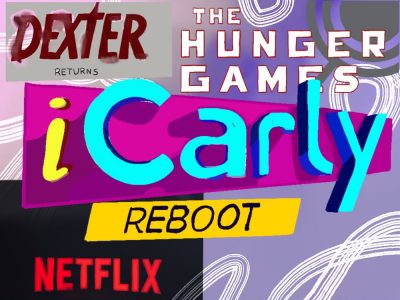Have you ever watched a really amazing movie and thought, “Wow, I can’t wait until they redo this ten years later!”
Me neither.
The reboot disease plagues Hollywood like never before. There’s nothing wrong with drawing inspiration from the past, but all reboots seem doomed from the start, forced to forever live in the shadows of their predecessor. However, a clever approach can usher in work as original as its namesake.
If Hollywood aims to cling onto the safety boat of reboots and prequels, its recreations must follow one obvious but glaringly overlooked rule. They must be different.
Reboots never seem to work just as hoped. More often than not, these additions to already respected properties are met with groans of dread. Viewers aren’t excited, they’re afraid their favorite movie or show will be besmirched by its namesake, a legacy ruined by excess.
The worst of these offenders can be found in live-action adaptations. From “The Last Airbender” to “The Lion King,” we see the promise of real people playing the parts isn’t enough to spark the same joy as the originals.
Movies and shows like this tend to rely on nostalgia — a hope you’ll want to see your favorites in a slightly different manner. But with such little change to the original storylines, studios are asking for comparisons that’ll never lean in their favor. The key to a good reboot is to establish the new as an addition, or complete re-working, of the old.

“iCarly” is a good example of a reboot which catered to nostalgia while offering new developments to keep people interested for the long run. Rather than remake the show with new actors filling out old roles, the show takes place with a majority of the original cast. Combining the wacky antics which defined the show’s popularity, cameos of old cast members mingled with new characters and more adult storylines, the series does more than press the reset button.
The “Dexter” reboot also caters to this same idea of picking up where the show first left off. It attempts this in an even more intriguing way, as “Dexter: New Blood” seeks to alleviate the disappointment many felt for the series’ original final season.
Another alternative to the copy-and-paste reboot lies in adaptations. Hollywood’s fear of original content presumably rests in the risk of putting millions of dollars into something it isn’t sure people will like. To avoid such a chance, while still offering originality, an increase in adaptations versus reboots would be a worthwhile endeavor.
Unlike reboots, which require differentiation from their source material if one wants to woo their audience of choice, adaptations are often celebrated for accuracy and originality alike. Hit Netflix series “Bridgerton,” developed from the books series of the same name, broke the single-week record for most-watched English-language TV series on Netflix with the release of its second season this past month. Fans recognized the series had begun straying from the book’s path, but considering its notable popularity, such liberty only strengthened its plot.
Adding to the allure of adaptations, lack of originality isn’t discouraged, but often praised. The promise that book adaptations offer is a visual experience, not a rejuvenation. I’m always most impressed when the pages’ stories remain untouched, maintaining the very essence that raised them to fame in the first place. Series like “The Hunger Games” demonstrate this. When a book is already well-written, the challenge lies less in the creation of new stories and more in the execution of the screen adaptation, ensuring you’ve done the original justice.
While offering resources to new and innovative stories is ideal, it’s not realistic for reboots to go away entirely. If we must be faced with recycled content, the least producers can do is build on the already lively worlds they’ve grown responsible for. Something old can always be made new, it’s just a matter of effort and respect.























































































































